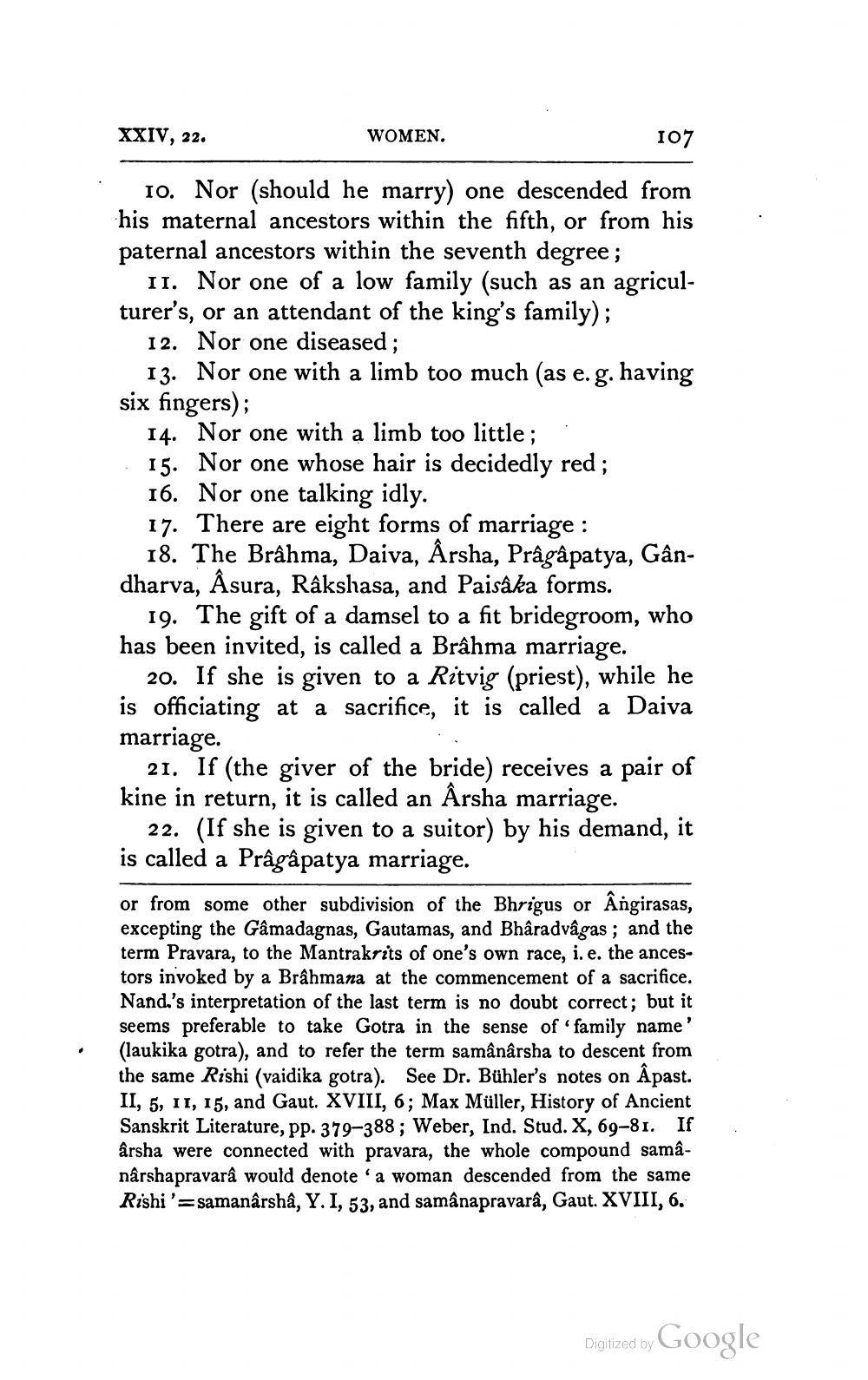________________
XXIV, 22.
WOMEN.
107
10. Nor (should he marry) one descended from his maternal ancestors within the fifth, or from his paternal ancestors within the seventh degree;
II. Nor one of a low family (such as an agriculturer's, or an attendant of the king's family);
12. Nor one diseased;
13. Nor one with a limb too much (as e. g. having six fingers);
14. Nor one with a limb too little;. 15. Nor one whose hair is decidedly red; 16. Nor one talking idly. 17. There are eight forms of marriage :
18. The Brâhma, Daiva, Arsha, Prâgâpatya, Gândharva, Asura, Râkshasa, and Paisâka forms.
19. The gift of a damsel to a fit bridegroom, who has been invited, is called a Brâhma marriage.
20. If she is given to a Ritvig (priest), while he is officiating at a sacrifice, it is called a Daiva marriage.
21. If (the giver of the bride) receives a pair of kine in return, it is called an Årsha marriage.
22. (If she is given to a suitor) by his demand, it is called a Prâgâpatya marriage. or from some other subdivision of the Bhrigus or Angirasas, excepting the Gâmadagnas, Gautamas, and Bhâradvâgas; and the term Pravara, to the Mantrakrits of one's own race, i.e. the ancestors invoked by a Brâhmana at the commencement of a sacrifice. Nand.'s interpretation of the last term is no doubt correct; but it seems preferable to take Gotra in the sense of family name' (laukika gotra), and to refer the term samânârsha to descent from the same Rishi (vaidika gotra). See Dr. Bühler's notes on Apast. II, 5, 11, 15, and Gaut. XVIII, 6; Max Müller, History of Ancient Sanskrit Literature, pp. 379-388; Weber, Ind. Stud. X, 69-81. If ârsha were connected with pravara, the whole compound samanârshapravarâ would denote a woman descended from the same Rishi'=samanârsha, Y. I, 53, and samânapravara, Gaut. XVIII, 6.
Digitized by Google




